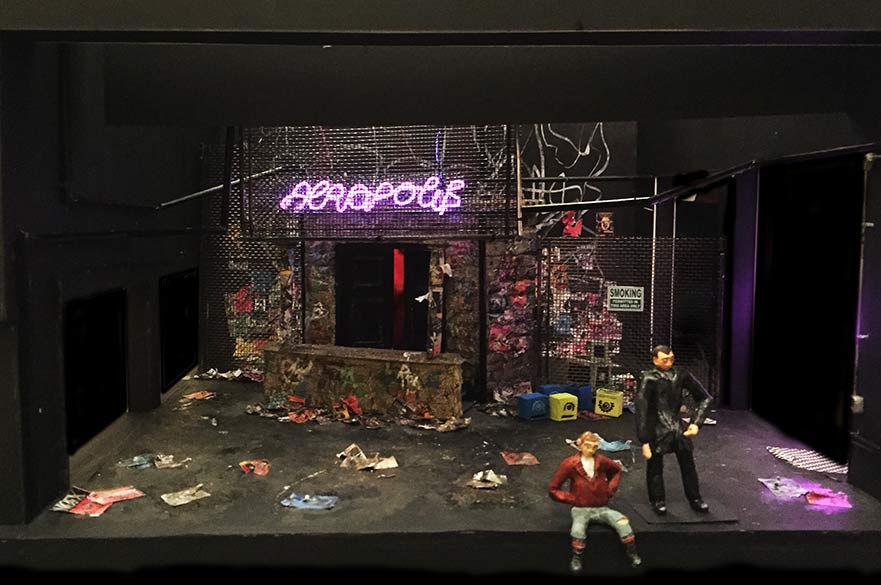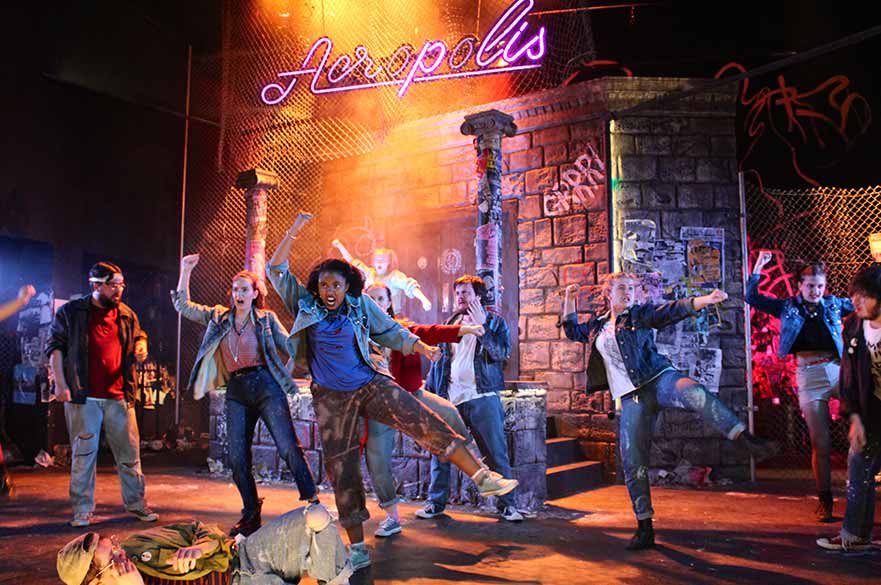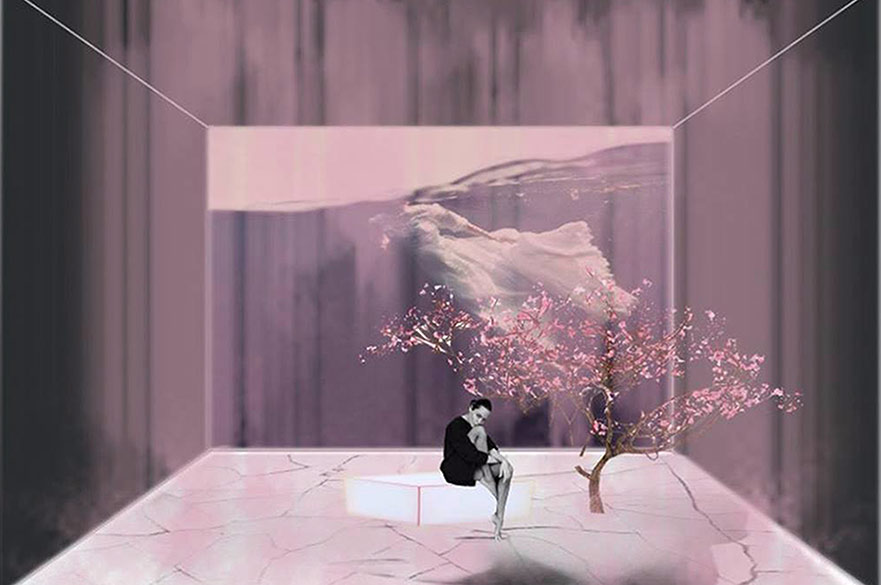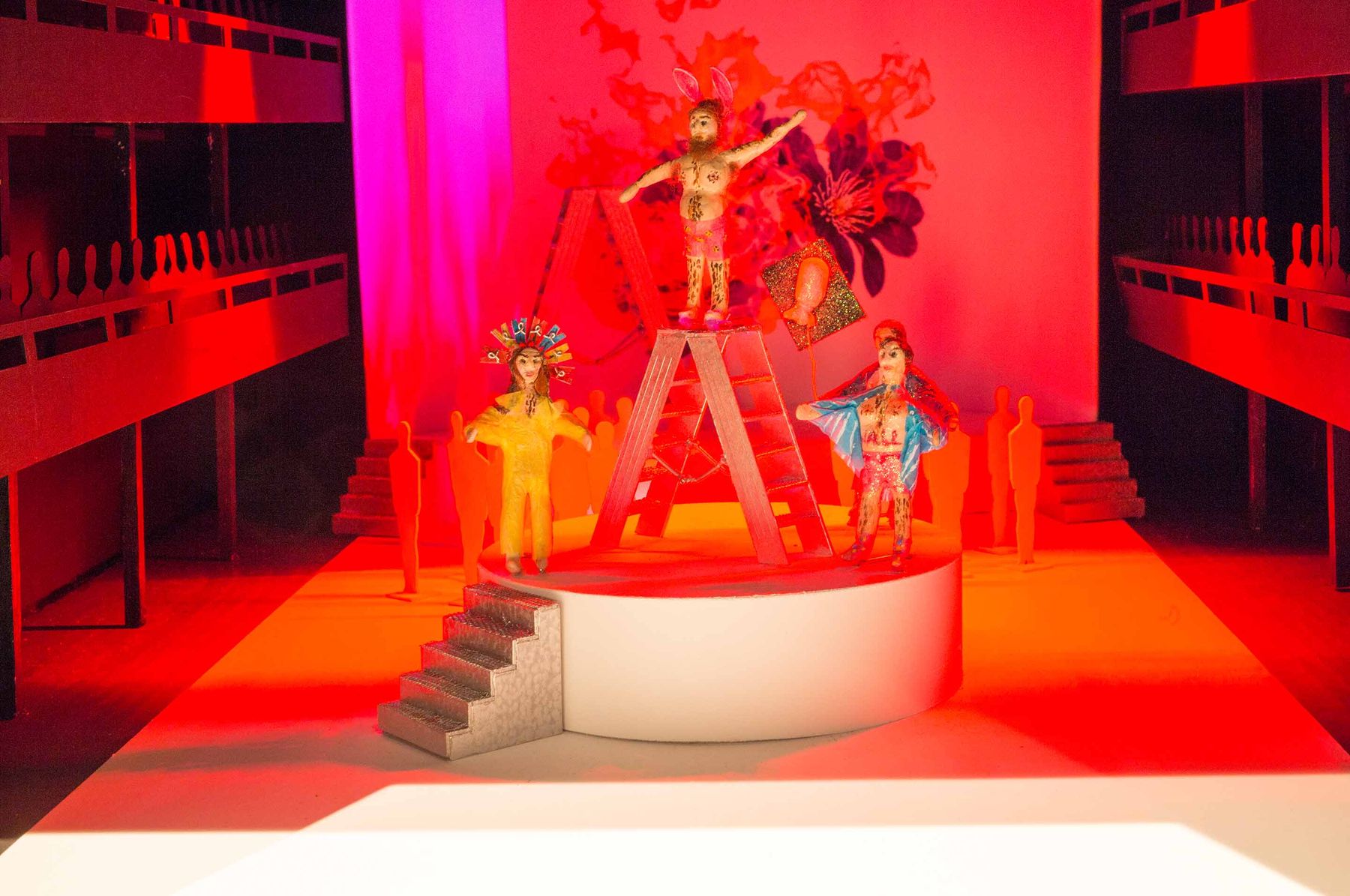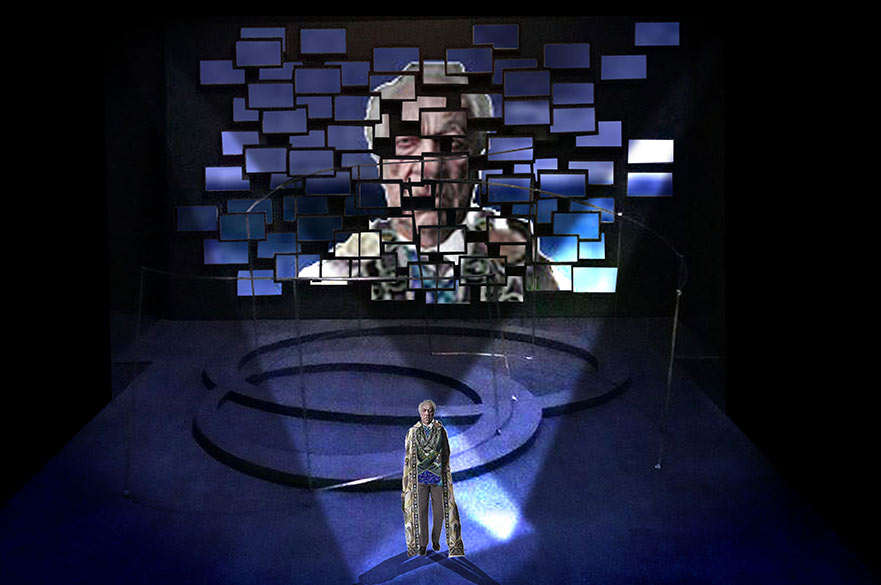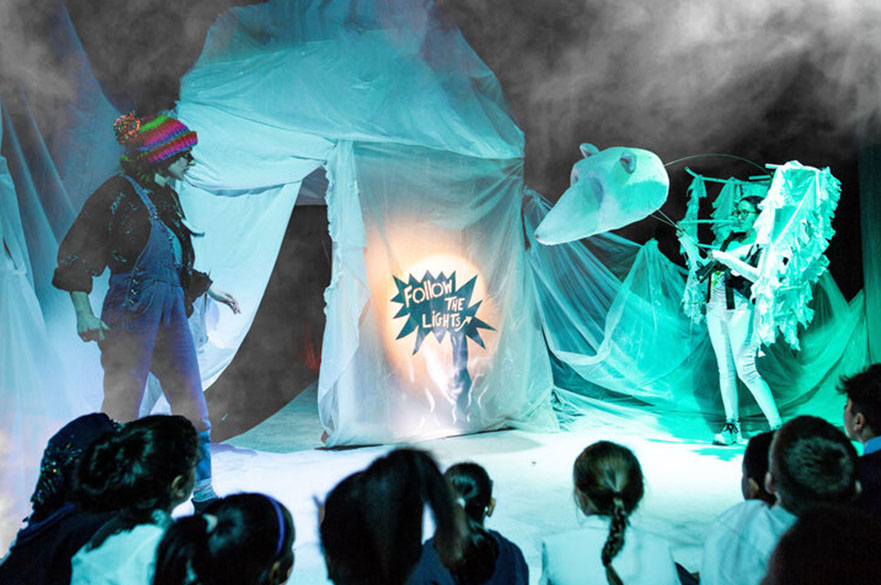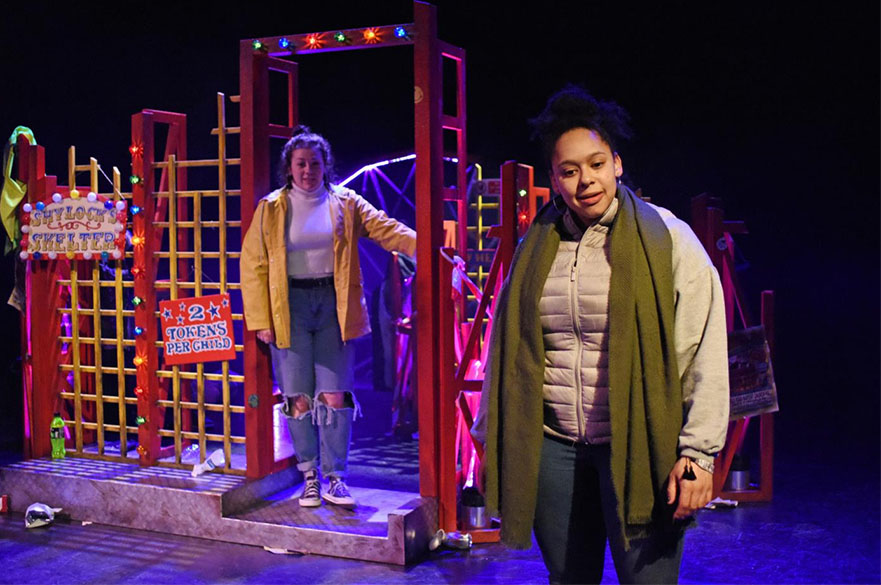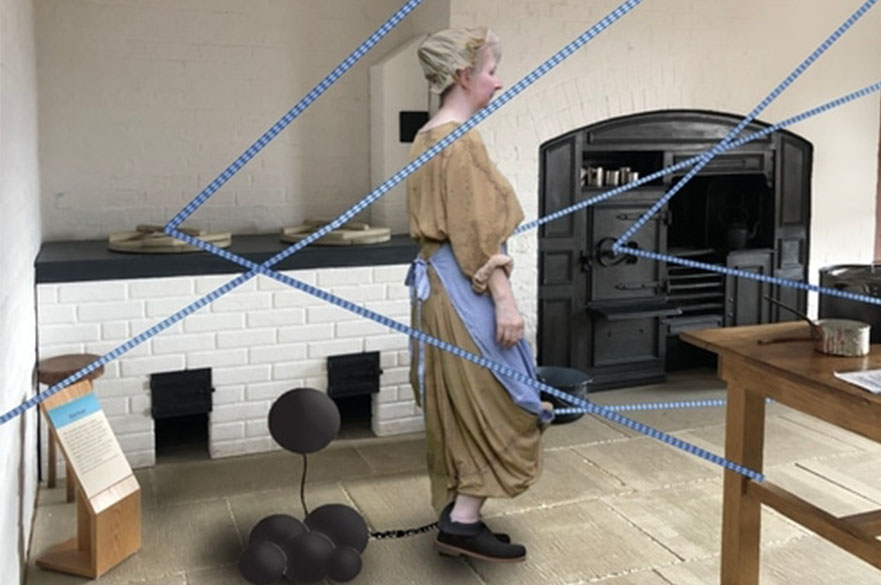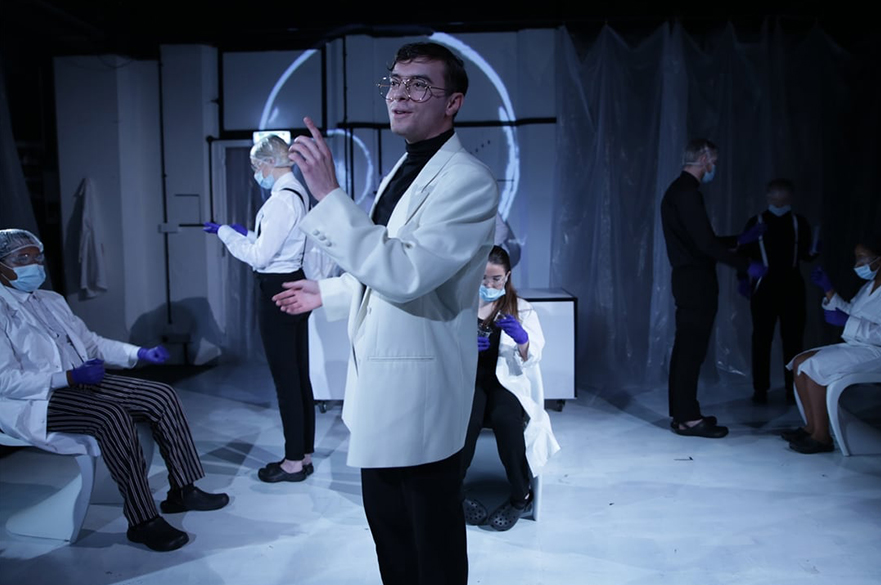Design for Theatre and Live Performance BA (Hons)
- Level(s) of Study: Undergraduate
- UCAS Code(s): W460
- Start Date(s): September 2023
- Duration: Three years
- Study Mode(s): Full-time
- Campus: City Campus
-
Entry Requirements:
More information
Introduction:
Explore all aspects of contemporary design practice for theatre and the live performance, including set and costume design; construction; digital technologies and design; lighting design and audio visual; site-specific design; puppetry; heritage installation; and design for community and education. The course is facilitated by the highly skilled team of staff and technicians who have years of professional and academic knowledge.
Main image credit: Leslie Travers, Designer from Elysium at the Norwegian Opera.
-
You’ll have the opportunity to complete a work experience placement of up to a year in length. Dependent on the duration of your placement, you could gain an additional Diploma or Certificate in Professional Practice.
-
This course is a member of the Performance Design Education Collective (PDEC), and the Society of British Theatre Designers (SBTD). Through these, we are also a member of the International Organisation of Scenographers, Theatre Architects and Technicians (OISTAT).
-
Work on live projects with industry such as The Royal National Theatre, Birmingham Opera Company, The National Trust and Nottingham Playhouse. You can also enter competitions set by organisations such as The Royal National Theatre’s Connections festival, and the Linbury Prize.
-
Go on study visits for inspiration, research, and experience, including live performances, museums and heritage and educational organisations. You can also apply for a European or international exchange to one of our partner institutions, such as Ryerson University in Canada.
What you’ll study
Don’t just take our word for it, hear from our students themselves
Student Work
Video Gallery
Careers and employability
Graduates have been employed as designers and assistant designers on a multitude of live productions or have gained employment in specific production roles with companies such as:
- the English National Opera (drawing room)
- National Theatre (scenic art)
- Cameron Mackintosh (model-making).
Graduates have also freelanced alongside internationally renowned designers in and out of the UK and worked on gallery installations, festivals, in film and TV, and for events and as community artists and practitioners.
Connecting with industry
Recent live projects and collaborations have included:
- Royal Concert Hall, Nottingham
- Nottingham Playhouse
- Birmingham Opera Company
- Nottingham Puppet Festival
- City Arts Nottingham
- The Workhouse, Southwell (National Trust)
- Lakeside Arts Theatre
- Metronome
- TV Workshop
Industry experts who have recently shared their knowledge and experience with our students include:
- Luke Halls, award winning video and projection designer
- Neil Franklin, creative producer from Stage One
- Richard Willacy, executive director, Birmingham Opera Company
- International Opera Designer - Leslie Travers
- Eco - scenographer- Andrea Carr
Creative Industries Federation
We are members of the Creative Industries Federation (CIF), which means students in the Nottingham School of Art & Design have the opportunity to sign up to free student membership. Creative Industries Federation are an organisation that represents, champions and supports the UK’s creative industries and membership grants students exclusive access to their selection of resources and events to help advance your career and connect with industry.
Campus and facilities
How to apply
Apply through UCAS.
We will ask you to provide a digital portfolio. Visit our webpage which has some advice on what to include to help make your portfolio stand out. After you have submitted your portfolio, we may also invite you to an online interview to help us make our final decision.
Keeping up to date
If you need any more help or information, please email our Admissions team or call +44 (0)115 848 4200.
You can apply for this course through UCAS. If you are not applying to any other UK universities, you can apply directly to us on our NTU applicant portal.
Application advice
Apply early so that you have enough time to prepare – processing times for Student visas can vary, for example. After you've applied, we'll be sending you important emails throughout the application process – so check your emails regularly, including your junk mail folder.
Writing your personal statement
Be honest, thorough, and persuasive – we can only make a decision about your application based on what you tell us:
Your portfolio
If your initial application is successful, you may be asked to upload a portfolio of your work and you may also be asked to attend an interview.
Would you like some advice on your study plans?
Our international teams are highly experienced in answering queries from students all over the world. We also have members of staff based in Vietnam, China, India and Nigeria and work with a worldwide network of education counsellors.
- Complete this simple form to keep in touch with the International Office.
The University's commitment to delivering the educational services advertised.
